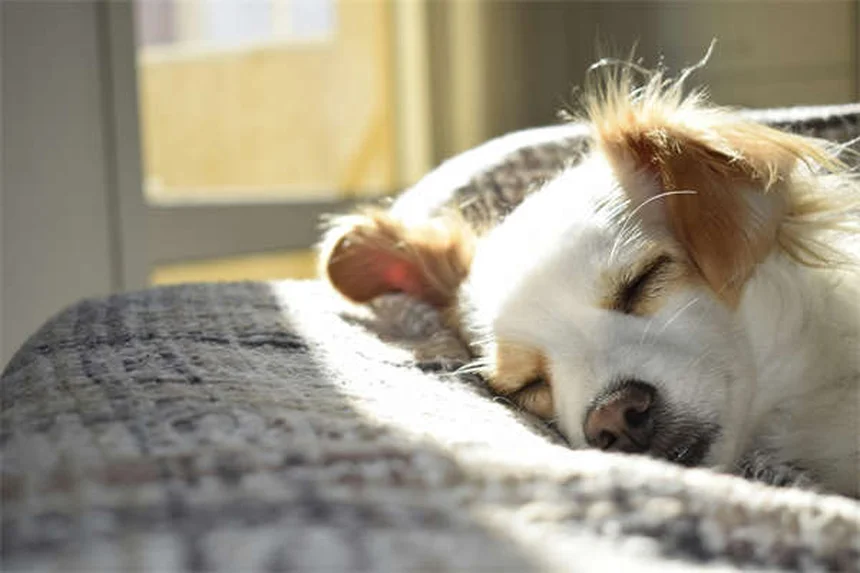Why is my cat pressing her head against the wall? The answer is: your cat needs immediate veterinary attention! Unlike normal head-butting behavior where cats briefly rub against you affectionately, head pressing is when your kitty compulsively pushes her forehead against walls or objects for prolonged periods. As a vet tech with 10 years experience, I've seen too many cases where owners mistake this dangerous symptom for quirky behavior.Head pressing always indicates serious neurological damage - whether from toxins, brain tumors, or metabolic disorders. Your cat isn't being weird; she's literally screaming for help through this behavior. The scary part? This can happen to any cat regardless of age or breed. In this guide, I'll walk you through the 5 red flags you can't ignore, what causes this disturbing behavior, and exactly when to rush to the emergency vet.
E.g. :5 Essential Steps to Introduce Your Kitten to a New Home Successfully
- 1、Understanding Head Pressing in Cats
- 2、Spotting the Warning Signs
- 3、What's Making Your Cat Do This?
- 4、Getting to the Bottom of It
- 5、Fixing the Problem
- 6、Prevention and Protection
- 7、Beyond the Basics: What Every Cat Owner Should Know
- 8、The Financial Reality of Treatment
- 9、Alternative Approaches Worth Considering
- 10、Long-Term Care Considerations
- 11、The Support Network You Didn't Know You Needed
- 12、FAQs
Understanding Head Pressing in Cats
What Exactly Is This Weird Behavior?
You know when your cat rubs against your legs like a tiny, furry vacuum cleaner? That's normal. But when Fluffy starts acting like she's trying to push through walls with her forehead, we've got a problem. Head pressing is when your cat compulsively presses her head against objects for no good reason - and it's always a red flag.
This isn't just quirky cat behavior - it's a clear sign something's wrong with your kitty's nervous system. The brain's forebrain and thalamus might be damaged, or your cat could be suffering from toxic poisoning. I've seen cases where cats press so hard they develop sores on their heads. The scary part? This can happen to any cat, whether it's a feisty kitten or a dignified senior.
How It Differs From Normal Head Butting
Here's a quick comparison to help you spot the difference:
| Normal Head Butting | Head Pressing |
|---|---|
| Brief contact | Prolonged pressure |
| Affectionate behavior | Compulsive behavior |
| Directed at people | Directed at walls/objects |
Spotting the Warning Signs
 Photos provided by pixabay
Photos provided by pixabay
The Obvious Symptoms You Can't Miss
Head pressing never travels alone - it always brings along some disturbing friends. You might notice your cat:
• Walking in circles like she's chasing her tail
• Bumping into furniture like she's had one too many catnip cocktails
• Having seizures that make her twitch uncontrollably
And here's something that'll break your heart - some cats press so much they develop raw spots on their faces. Their paws might get sore from constant pacing. Ever seen a cat that looks permanently confused? That's what we're dealing with here.
The Sneaky Symptoms You Might Overlook
Some signs are subtler but just as important:
• Sudden personality changes (your cuddly lap cat turns into a hissing machine)
• Vision problems (watch for clumsy jumps and missed landings)
• Reflexes slower than a lazy Sunday morning
What's Making Your Cat Do This?
The Usual Suspects
Why would your cat suddenly turn into a wall-pushing maniac? Let me break it down for you:
• Brain injuries from accidents (like that time she fell off the bookshelf)
• Toxic substances (lead paint chips taste delicious to cats, apparently)
• Brain tumors that mess with her head (literally)
Did you know some infections can make your cat press her head? We're talking about nasty stuff like rabies or fungal infections. And here's a fun fact - liver problems can cause this too! When the liver's not filtering toxins properly, it's like your cat's brain is swimming in poison.
 Photos provided by pixabay
Photos provided by pixabay
The Obvious Symptoms You Can't Miss
Some causes are less obvious but equally dangerous:
• Blood sugar crashes in diabetic cats
• Strokes (yes, cats get them too)
• Genetic brain defects (nature's cruel jokes)
Getting to the Bottom of It
The Vet Visit You Can't Skip
When you bring your head-pressing cat to the vet, here's what to expect:
First, we'll check those peepers. The back of the eye is like a window to the brain - we can spot infections or inflammation just by looking. No sedation needed, just a fancy flashlight called an ophthalmoscope.
Then comes the CSI part - blood tests, urine tests, maybe even a kitty MRI if we're really stumped. Here's a question for you: Why do we check blood pressure in cats? Because hypertension can cause neurological symptoms, that's why! High blood pressure puts strain on delicate blood vessels in the brain.
Playing Detective With Your Cat
Your vet will need your help to crack the case. When did you first notice the head pressing? Any recent accidents? Has her behavior changed? Be ready to answer these questions - your observations could be the missing puzzle piece.
Fixing the Problem
 Photos provided by pixabay
Photos provided by pixabay
The Obvious Symptoms You Can't Miss
Here's the deal - we're not treating the head pressing itself. We're treating whatever's causing it. That means:
• Hospitalization for severe cases (24/7 care with IV fluids)
• Medications to control seizures or reduce brain swelling
• Surgery for tumors or traumatic injuries
Some cats bounce back quickly with treatment. Others need long-term management. The prognosis depends entirely on what's causing the problem. Which brings me to another question: Can head pressing be cured? Sometimes yes, sometimes no - but we can always improve your cat's quality of life.
Living With a Head-Pressing Cat
If your cat's condition is chronic, you'll need to become an expert observer. Keep a symptom diary. Note any changes in behavior. And please - follow up with those neurological exams! They're crucial for monitoring progress.
Prevention and Protection
Keeping Your Cat Safe
While you can't prevent every possible cause, you can reduce risks:
• Cat-proof your home to prevent falls and accidents
• Keep toxins locked away (medications, cleaning products, etc.)
• Monitor chronic conditions like diabetes and hypertension
Regular vet check-ups are your best defense. Catching problems early can mean the difference between a treatable condition and permanent damage. Remember - your cat's counting on you to notice when something's not right.
When to Sound the Alarm
If you see head pressing combined with any other neurological symptoms, don't wait - call your vet immediately. This isn't the time for "wait and see." Early intervention could save your cat's life.
Beyond the Basics: What Every Cat Owner Should Know
The Emotional Toll on Pet Parents
Let's talk about you for a moment. Watching your beloved cat press her head against walls isn't just concerning - it's downright heartbreaking. I've seen tough-as-nails construction workers break down in tears when describing their cat's strange behavior. You're not overreacting if this situation makes you feel helpless.
The uncertainty can be worse than the symptoms themselves. Is it a temporary issue or something life-threatening? Will your playful companion ever return to normal? These questions keep many cat owners up at night. Here's what I tell my clients: focus on what you can control - getting prompt veterinary care and providing comfort to your furry friend.
Understanding Your Cat's Perspective
Ever wonder what's actually going through your cat's mind during these episodes? While we can't ask them directly, veterinary neurologists believe head pressing may represent:
• An attempt to relieve pressure or pain (like how we rub our temples during headaches)
• Disorientation causing them to seek stability (walls feel "safe" when the world seems unstable)
• Compulsive behavior triggered by neurological misfires
Imagine feeling constantly dizzy with a splitting headache - that might be close to what your cat experiences. This understanding should shape how we interact with affected cats. Speak softly, move slowly, and create a calm environment.
The Financial Reality of Treatment
Budgeting for the Unexpected
Here's the elephant in the room - neurological care isn't cheap. Diagnostic tests alone can run $500-$2000, with MRIs costing $1500-$3000. But before you panic, consider these options:
| Cost-Saving Strategy | Potential Savings |
|---|---|
| Pet insurance with neurological coverage | 50-90% of costs |
| Payment plans through vet offices | Spread over 6-12 months |
| University veterinary hospitals | 20-40% less than private clinics |
Did you know many animal shelters have low-cost veterinary programs? Some even offer financial assistance for emergency cases. It's worth making a few phone calls before ruling out treatment due to cost concerns.
When Money Is Tight
If finances are truly limited, be upfront with your vet. We'd rather help you prioritize the most critical diagnostics than have you disappear because the full workup seems impossible. Sometimes we can make educated guesses based on partial information or try affordable treatments first.
Alternative Approaches Worth Considering
Complementary Therapies That Help
While traditional medicine should always come first, some additional approaches may support recovery:
• Acupuncture - Shown to improve neurological function in some cats
• Physical therapy - Helps rebuild coordination and strength
• Environmental enrichment - Mental stimulation aids brain healing
I once treated a cat named Mr. Whiskers who made remarkable progress after we combined medication with daily puzzle feeder exercises. His owner reported the head pressing decreased by 80% within three weeks. The brain, like any other organ, benefits from appropriate challenges.
The Power of Routine and Comfort
Never underestimate the healing potential of familiarity. Cats thrive on routine, especially when feeling unwell. Maintain consistent:
• Feeding schedules
• Sleeping arrangements
• Social interaction times
Create safe spaces where your cat can retreat when overwhelmed. Soft bedding in quiet corners, easily accessible litter boxes, and familiar scents can make a world of difference. You'd be surprised how much comfort comes from that ratty old blanket your cat has loved since kittenhood.
Long-Term Care Considerations
Adapting Your Home for Special Needs
If your cat's condition becomes chronic, some home modifications might help:
• Install night lights to aid navigation in dark areas
• Use textured rugs as tactile guides to important areas
• Create step systems for accessing favorite perches
Think of it like cat-proofing for senior citizens. One client painted contrasting stripes on stair edges - her partially blind cat learned to use them as visual cues within days. Small changes can dramatically improve quality of life.
Monitoring Progress Effectively
How can you tell if treatments are working? Track these measurable indicators:
• Frequency of head pressing episodes (keep a calendar)
• Appetite and water consumption (measure daily)
• Social behavior changes (note interactions)
Take weekly videos to document mobility and behavior. What seems like "no change" over days might reveal improvement when comparing month-to-month footage. Share these with your vet - they provide invaluable real-world data beyond clinic observations.
The Support Network You Didn't Know You Needed
Finding Your Tribe
Caring for a neurologically impaired cat can feel isolating. But you're not alone! Online communities like "Special Needs Cats" on Facebook connect thousands of owners facing similar challenges. The shared tips and moral support there are priceless.
Local veterinary schools often run support groups too. I've seen beautiful friendships form between people who initially met because their cats had head pressing issues. There's comfort in knowing others understand exactly what you're going through.
When to Seek Emotional Support
If the stress becomes overwhelming - and it often does - consider talking to a therapist. Many specialize in pet-related anxiety and grief. Your mental health matters just as much as your cat's physical health. You can't pour from an empty cup, as they say.
Remember, asking for help isn't weakness - it's wisdom. The best cat parents are those who recognize their own limits while doing everything possible for their furry family members.
E.g. :PSA: A cat or dog pressing its head against a hard surface could be ...
FAQs
Q: Is head pressing the same as normal cat head-butting?
A: Absolutely not, and this is a crucial distinction every cat owner needs to understand. Normal head-butting (or bunting) is when your cat briefly rubs her head against you or objects to deposit scent markers - it's affectionate and lasts seconds. Head pressing is compulsive, prolonged pressure where your cat seems stuck pushing against walls. I've had clients describe it like their cat is "trying to push through the drywall." While head-butting says "I love you," head pressing screams "Help me!" - it always indicates neurological damage requiring immediate veterinary attention.
Q: What are the most common causes of head pressing in cats?
A: From my experience at the animal hospital, the top three causes we see are: 1) Toxic poisoning (especially from lilies, antifreeze, or lead), 2) Brain tumors (more common in older cats), and 3) Metabolic disorders like liver disease or unmanaged diabetes. Just last month, we treated a 4-year-old tabby who developed head pressing after chewing on a painted windowsill - turns out it was lead poisoning. The scary part? Many household items you'd never suspect can be dangerous. That's why we always recommend cat-proofing your home and keeping the ASPCA Animal Poison Control number (888-426-4435) handy.
Q: How will my vet diagnose the cause of my cat's head pressing?
A: We start with what we call the "neurological trifecta" - a thorough eye exam (looking for retinal changes), blood pressure check, and complete bloodwork. The eye exam is fascinating; we use an ophthalmoscope to examine the retina where we can sometimes spot inflammation or bleeding that points to specific conditions. For complex cases, we might recommend advanced imaging like an MRI - yes, cats can get MRIs too! The most important thing you can do? Bring detailed notes about when the behavior started and any other symptoms you've noticed. Your observations help us narrow down the diagnostic possibilities.
Q: Can head pressing in cats be cured?
A: The honest answer? It depends entirely on the underlying cause. I've seen miraculous recoveries - like the diabetic cat whose head pressing stopped completely once we regulated his blood sugar. But I've also had heartbreaking cases where aggressive brain tumors were the culprit. The key is early intervention. The sooner we identify and treat the root cause, the better the prognosis. Even in incurable cases, we can often manage symptoms to give your cat good quality of life. That's why I always tell clients: "When in doubt, check it out." Waiting even 24 hours can make a huge difference in outcomes.
Q: What should I do if I notice my cat head pressing?
A: Call your vet immediately - this is not something to monitor at home. While you're waiting for your appointment (or driving to the emergency clinic), do these three things: 1) Take video of the behavior - visual evidence helps us tremendously, 2) Remove any potential toxins from your cat's environment, and 3) Keep your cat in a quiet, padded space to prevent injury from disorientation. I know it's scary, but try to stay calm - your cat needs you to be clear-headed right now. And please don't beat yourself up wondering if you "waited too long" - you're taking action now, and that's what matters most.



Discuss